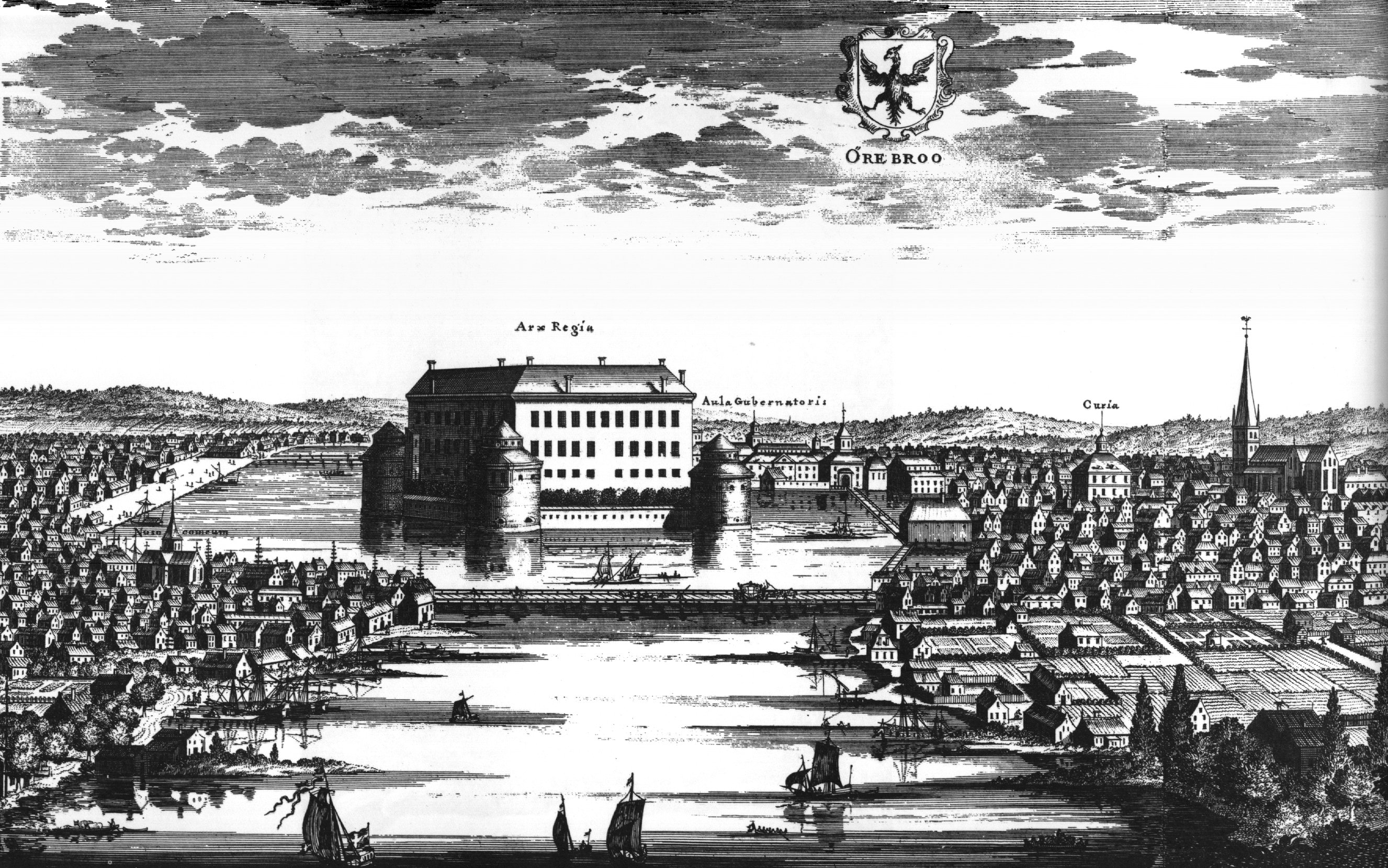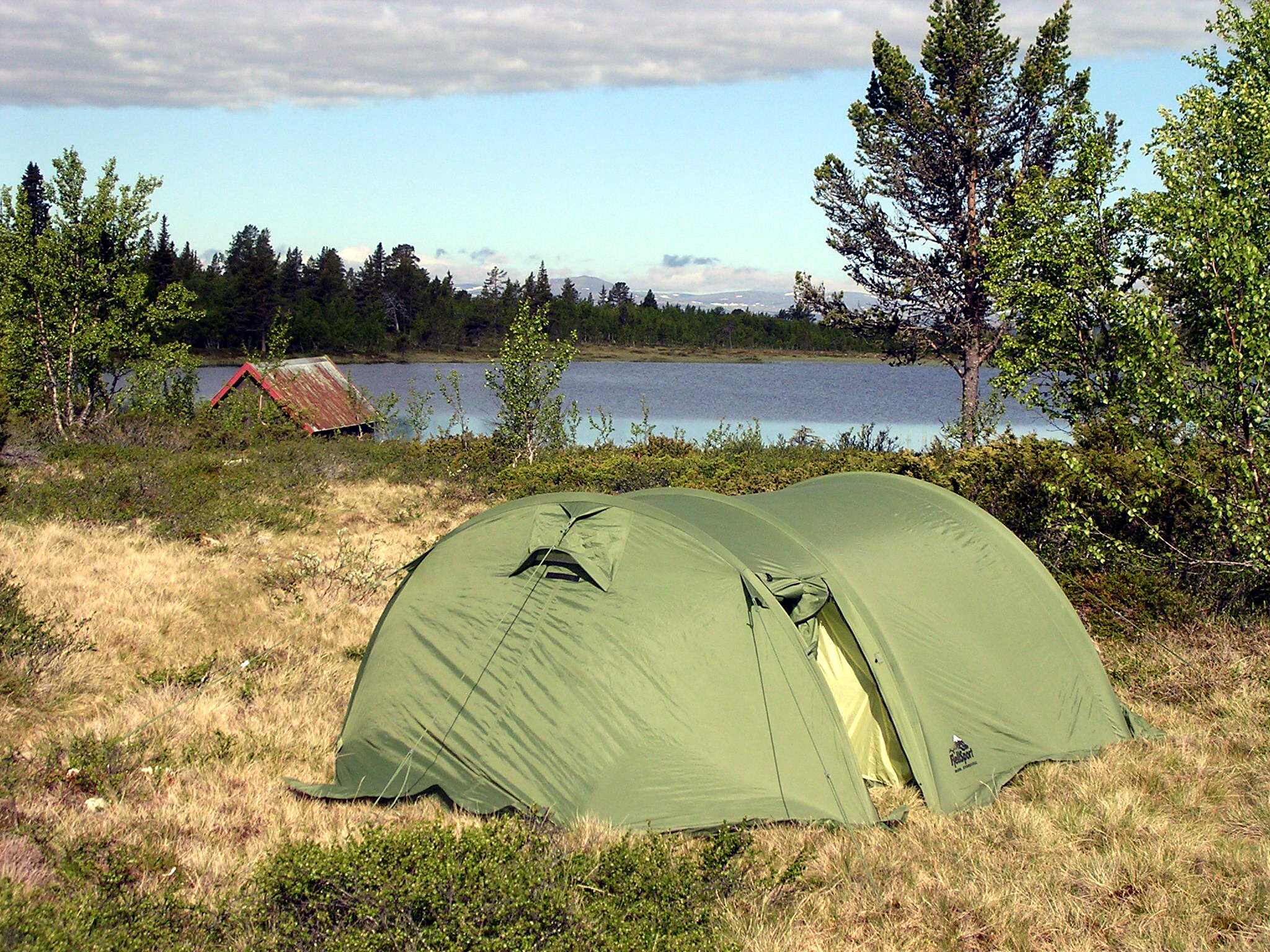|
Nikola Šarčević
Nikola Šarčević (Serbian Cyrillic: Никола Шарчевић; born 9 July 1974, Örebro) is a Swedish musician of Serbian origin. He is the bassist, vocalist, and primary songwriter for the Swedish punk rock band Millencolin and also has a solo career with 4 studio albums. He also runs the Swedish brewery Duckpond Brewing. Biography His first band was Seigmenn. '' Lock-Sport-Krock'' was Šarčević's first solo album. The title comes from the name of an imaginary football team that he and his brother pretended to play in when they were young. His solo work is mostly composed of folk rock and country music. On 20 April 2003, the band cancelled their US Tour after Nikola reported the disappearance of his brother, Miodrag Šarčević. Miodrag was found, deceased, four years later. It is believed a few Millencolin songs such as “Happiness For Dogs” and “Farewell My Hell” were written about him. Nikola was listed as one of the "World's Sexiest Vegetarians" in 2008 and ... [...More Info...] [...Related Items...] OR: [Wikipedia] [Google] [Baidu] |
Örebro
Örebro ( , ) is the List of urban areas in Sweden by population, sixth-largest city in Sweden, the seat of Örebro Municipality, and capital of the Örebro County. It is situated by the Närke Plain, near the lake Hjälmaren, a few kilometers inland along the small river Svartån, Närke, Svartån, and has a population of approximately 126,000 in the city proper. It is one of the largest inland hubs of the country, and a major Logistics, logistic and commercial operating site. Örebro is home to Örebro University, a Örebro University Hospital, major university hospital, a Örebro Castle, medieval castle, the water park Gustavsvik as well as several large shopping malls and the Oset-Rynningeviken nature reserve at the lakefront. Örebro is served by Örebro Airport 10 km (6 mi) southwest of the city, and by Örebro Central Station, serviced by the Mälaren Line and Western Main Line. Etymology The name ''Örebro'' refers to a bridge (') crossing the river Svartån, Närke, S ... [...More Info...] [...Related Items...] OR: [Wikipedia] [Google] [Baidu] |
Vegetarianism
Vegetarianism is the practice of abstaining from the consumption of meat (red meat, poultry, seafood, insects, and the flesh of any other animal). It may also include abstaining from eating all by-products of animal slaughter. Vegetarianism may be adopted for various reasons. Many people object to eating meat out of respect for sentient animal life. Such ethical motivations have been codified under various religious beliefs as well as animal rights advocacy. Other motivations for vegetarianism are health-related, political, environmental, cultural, aesthetic, economic, taste-related, or relate to other personal preferences. There are many variations of the vegetarian diet: an ovo-lacto vegetarian diet includes both eggs and dairy products, an ovo-vegetarian diet includes eggs but not dairy products, and a lacto-vegetarian diet includes dairy products but not eggs. As the strictest of vegetarian diets, a vegan diet excludes all animal products, and can be accompanied by absten ... [...More Info...] [...Related Items...] OR: [Wikipedia] [Google] [Baidu] |
Freedom To Roam
The freedom to roam, or "everyman's right", is the general public's right to access certain public or privately owned land, lakes, and rivers for recreation and exercise. The right is sometimes called the right of public access to the wilderness or the "right to roam". In Scotland, Finland, Iceland, Norway, Sweden, Estonia, Latvia, Lithuania, Belarus, Austria, Czech Republic and Switzerland, the freedom to roam takes the form of general public rights which are sometimes codified in law. The access is ancient in parts of Northern Europe and has been regarded as sufficiently basic that it was not formalised in law until modern times. However, the right usually does not include any substantial economic exploitation, such as hunting or logging, or disruptive activities, such as making fires and driving offroad vehicles. In countries without such general rights, there may be a network of rights of way, or some nature reserves with footpaths. Europe Nordic countries Ancient traces p ... [...More Info...] [...Related Items...] OR: [Wikipedia] [Google] [Baidu] |
Ophelia (Sarcevic Song)
Ophelia () is a character in William Shakespeare's drama ''Hamlet'' (1599–1601). She is a young noblewoman of Denmark, the daughter of Polonius, sister of Laertes and potential wife of Prince Hamlet, who, due to Hamlet's actions, ends up in a state of madness that ultimately leads to her drowning. Along with Queen Gertrude, Ophelia is one of only two female characters in the original play. Name Like most characters in ''Hamlet'', Ophelia's name is not Danish. It first appeared in Jacopo Sannazaro's 1504 poem ''Arcadia'' (as ''Ofelia''), probably derived from Ancient Greek ὠφέλεια (''ōphéleia'', "benefit"). Plot In Ophelia's first speaking appearance in the play, she is seen with her brother, Laertes, who is leaving for France. Laertes warns her that Hamlet, the heir to the throne of Denmark, does not have the freedom to marry whomever he wants. Ophelia's father, Polonius, who enters while Laertes is leaving, also forbids Ophelia from pursuing Hamlet, as Polon ... [...More Info...] [...Related Items...] OR: [Wikipedia] [Google] [Baidu] |
Soul For Sale
In many religious and philosophical traditions, there is a belief that a soul is "the immaterial aspect or essence of a human being". Etymology The Modern English noun ''soul'' is derived from Old English ''sāwol, sāwel''. The earliest attestations reported in the ''Oxford English Dictionary'' are from the 8th century. In King Alfred's translation of ''De Consolatione Philosophiae'', it is used to refer to the immaterial, spiritual, or thinking aspect of a person, as contrasted with the person's physical body; in the Vespasian Psalter 77.50, it means "life" or "animate existence". The Old English word is cognate with other historical Germanic terms for the same idea, including Old Frisian ''sēle, sēl'' (which could also mean "salvation", or "solemn oath"), Gothic ''saiwala'', Old High German ''sēula, sēla'', Old Saxon ''sēola'', and Old Norse ''sāla''. Present-day cognates include Dutch ''ziel'' and German ''Seele''. Religious views In Judaism and in some Christia ... [...More Info...] [...Related Items...] OR: [Wikipedia] [Google] [Baidu] |
Freedom To Roam
The freedom to roam, or "everyman's right", is the general public's right to access certain public or privately owned land, lakes, and rivers for recreation and exercise. The right is sometimes called the right of public access to the wilderness or the "right to roam". In Scotland, Finland, Iceland, Norway, Sweden, Estonia, Latvia, Lithuania, Belarus, Austria, Czech Republic and Switzerland, the freedom to roam takes the form of general public rights which are sometimes codified in law. The access is ancient in parts of Northern Europe and has been regarded as sufficiently basic that it was not formalised in law until modern times. However, the right usually does not include any substantial economic exploitation, such as hunting or logging, or disruptive activities, such as making fires and driving offroad vehicles. In countries without such general rights, there may be a network of rights of way, or some nature reserves with footpaths. Europe Nordic countries Ancient traces p ... [...More Info...] [...Related Items...] OR: [Wikipedia] [Google] [Baidu] |
Omen (single)
An omen (also called ''portent'') is a phenomenon that is believed to foretell the future, often signifying the advent of change. It was commonly believed in ancient times, and still believed by some today, that omens bring divine messages from the gods. These omens include natural phenomena, for example an eclipse, abnormal births of animals (especially humans) and behaviour of the sacrificial lamb on its way to the slaughter. Specialists, known as diviners, variously existed to interpret these omens. They would also use an artificial method, for example, a clay model of a sheep liver, to communicate with their gods in times of crisis. They would expect a binary answer, either yes or no, favourable or unfavourable. They did these to predict what would happen in the future and to take action to avoid disaster. Though the word ''omen'' is usually devoid of reference to the change's nature, hence being possibly either "good" or "bad", the term is more often used in a forebodi ... [...More Info...] [...Related Items...] OR: [Wikipedia] [Google] [Baidu] |
En Sommar Dag
En or EN may refer to: Businesses * Bouygues (stock symbol EN) * Esquimalt and Nanaimo Railway (reporting mark EN, but now known as Southern Railway of Vancouver Island) * Euronews, a news television and internet channel Language and writing * En or N, the 14th letter of the Roman alphabet * EN (cuneiform), the mark in Sumerian cuneiform script for a High Priest or Priestess meaning "lord" or "priest" * En (Cyrillic) (Н, н), a letter of the Cyrillic alphabet, equivalent to the Roman letter "n" * En (digraph), ‹en› used as a phoneme * En (typography), a unit of width in typography ** en dash, a dash one en long * En language, a language spoken in northern Vietnam * English language (ISO 639-1 language code en) Organisations * Eastern National, a US organization providing educational products to National Park visitors * English Nature, a former UK government conservation agency * Envirolink Northwest, an environmental organization in England Religion * En (deity) in Alba ... [...More Info...] [...Related Items...] OR: [Wikipedia] [Google] [Baidu] |
Gothenburg
Gothenburg (; abbreviated Gbg; sv, Göteborg ) is the second-largest city in Sweden, fifth-largest in the Nordic countries, and capital of the Västra Götaland County. It is situated by the Kattegat, on the west coast of Sweden, and has a population of approximately 590,000 in the city proper and about 1.1 million inhabitants in the metropolitan area. Gothenburg was founded as a heavily fortified, primarily Dutch, trading colony, by royal charter in 1621 by King Gustavus Adolphus. In addition to the generous privileges (e.g. tax relaxation) given to his Dutch allies from the ongoing Thirty Years' War, the king also attracted significant numbers of his German and Scottish allies to populate his only town on the western coast. At a key strategic location at the mouth of the Göta älv, where Scandinavia's largest drainage basin enters the sea, the Port of Gothenburg is now the largest port in the Nordic countries. Gothenburg is home to many students, as the city includes ... [...More Info...] [...Related Items...] OR: [Wikipedia] [Google] [Baidu] |







